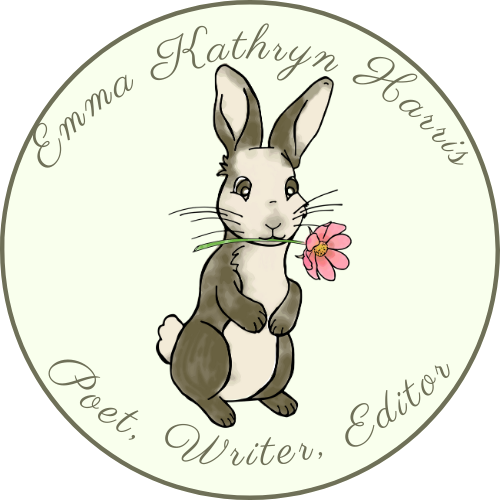The finest language is mostly made up of simple unimposing words.”
George Eliot, novelist, poet, journalist
Classic literature takes up an exorbitant—albeit welcomed—amount of space on my shelves. And not just in my library, but about every room in my house has some volume of literature. Think William Makepeace Thackeray (“Vanity Fair”), L.M. Montgomery (“Anne of Green Gables”), Jane Austen (“Pride and Prejudice”), the Brontes (“Jane Eyre,” “Wuthering Heights”), Harper Lee (“To Kill a Mockingbird”) as well as poets Emily Dickinson, Robert Frost, William Wordsworth Longfellow. There’s a lot more, but you get the idea.
I recently picked up “Vanity Fair” again after seeing one of the recent movies with Olivia Cooke as Becky Sharp. I wanted to reread the last chapter as the movie only has room for so much. But the final chapter sums up the point of the story. I cannot be sure, but I think the last chapter is about 10,000 words. Okay, I may be exaggerating. Yet when you look at the classics, we clearly no longer write with such wordiness. The majority of people don’t have time to sit around and read all day for weeks.
Here is one sentence from the book as an example, the opening to the final chapter 67: “Whatever Becky’s private plan might be by which Dobbin’s true love was to be crowned with success, the little woman thought that the secret might keep, and indeed, being by no means so much interested about anybody’s welfare as about her own, she had a great number of things pertaining to herself to consider, and which concerned her a great deal more than Major Dobbin’s happiness in his life.”
Yup, one sentence.
Not to mention some of the words and phrases that have changed throughout the decades. They were fitting for the time they were written, but certainly wouldn’t work today.
Here is a snippet from Katherine Mansfield’s “The Garden Party”: “Mrs. Stubbs’s shop was perched on a little hillock just off the road. It had two big windows for eyes, a broad veranda for a hat, and the sign on the roof, scrawled MRS STUBBS’S, was like a little card stuck rakishly in the hat crown.”
It is not that we don’t understand what we are reading, especially if you, like me, enjoy the classics and are used to them. But as much as we enjoy the flowery language and educated words, today’s writing is and should be much simpler.
Writing in simple, everyday language can help make our message understandable. How can we do that?

Keep your writing simple
Language we use in our novels, poetry, and business communications will vary according to each audience. While we can write more creatively in our novels and poetry, our tone would be different for our e-newsletters, author stories, and marketing.
Regardless of what we write, it should be understandable to our readers. As writers, we are more attuned to word variations and love our thesaurus. But there is a point where our words need not make us sound so vainly educated that the meaning is lost because our readers are reaching for their dictionaries. Then it becomes about us, rather than the message. In some cases, your language could turn people off, having the opposite effect on your objective.
“Prestigious. Often an adjective of last resort. It’s in the dictionary, but that doesn’t mean you have to use it.” — William Strunk Jr., “The Elements of Style.
As the author of our work, we are close to the backstory and where we intend to end up. We sometimes forget that others might not understand what we are writing about because they are not in our heads. We need to step back and analyze if we could relate to the story if we did not have access to the additional information and research.
And this is not about “dumbing down” our work. When I worked as a reporter years ago, my editor reminded me to write at a fifth-grade level since that is about where a lot of the education ends (this was not “The New York Times” or “Washington Post”). I didn’t have to write as if we were in kindergarten, but I couldn’t use language and words that only scholars would understand.
We have to think of our writing in that way, unless you are, indeed, writing for fellow scholars. The rest of us write for everyone else with varied education levels.

Writing for everyday people
We often only have one shot to hook readers’ interests. So, what are they interested in? What do they understand? What will they enjoy? What will give them enough information that makes them curious?
Writing simple is important if you are a journalist, a freelance writer, or a communications writer in a company because no one has time to read a research paper length dictation. We have limited space, limited attention spans, and we have learned you can say a lot with fewer words.
Look at the “Vanity Fair” example above. Can you see how this can be cut to more than half?
How about: “Becky cared more about her own happiness than Major Dobbin’s or anyone else’s. She would keep his secret to herself and move on.”
The creative, ornate language is missing, but sometimes it isn’t needed for you to make your point. Keeping your words and phrases succinct will often have more impact.
Keeping your words and phrases succinct will often have more impact.
Perhaps you can think of another edit. But the intent is to look at your own work and examine how you can reduce its size by cutting out unnecessary words and getting to the point. Your goal is to avoid drowning people in your fluency to the point they forget what they are reading and why.
Writing simply takes a lot of practice and talent. Often, the best words are the simplest and easiest to remember.



